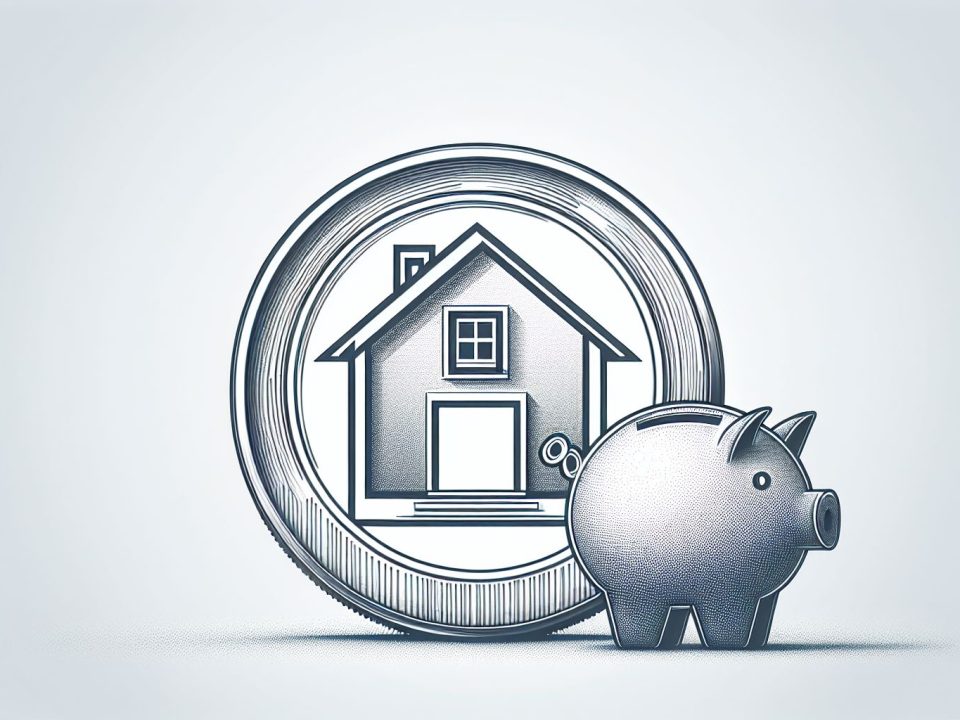
How Easy Is It to Switch Accountants? A Simple 2-Step Guide for Kiwi Businesses
September 26, 2025
Papakura Accountants: Local Business Support from Manukau-Based Experts You Can Trust
September 29, 2025Leveraging Home Equity for Investment: A Strategic Approach to Building Wealth
Your home represents more than just a place to live—it’s likely your most valuable financial asset. If you’ve owned your property for several years, you’ve probably built up substantial equity that could be the key to accelerating your wealth-building journey. Understanding how to leverage this equity responsibly can open doors to investment opportunities that might otherwise take years of saving to access.
Understanding Home Equity and How It Works
Home equity is the difference between your property’s current market value and the outstanding balance on your mortgage. As property values increase and you pay down your mortgage, this equity grows, creating a valuable resource you can tap into for investment purposes.
Let’s illustrate with a practical example: If your home is currently worth $900,000 and you still owe $500,000 on your mortgage, you have $400,000 in equity. However, it’s important to understand that banks typically won’t lend against the full value of your property. Most financial institutions limit lending to 80% of a property’s value for investment purposes.
Using our example, 80% of $900,000 equals $720,000. Since you already owe $500,000, your usable equity would be $220,000 ($720,000 – $500,000). This represents the amount you could potentially access for investment purposes while maintaining the bank’s required loan-to-value ratio.
Methods of Accessing Your Home Equity
There are several ways to access your home equity, each with its own advantages and considerations:
Mortgage Top-Up
This involves increasing your existing home loan to access additional funds. It’s often the most straightforward option as you’re dealing with your current lender and maintaining a single loan facility. The interest rate typically matches your existing mortgage rate.
Revolving Credit Facility
This option provides flexible access to funds through a credit line secured against your property. You only pay interest on the amount you actually use, and you can draw down and repay funds as needed. This flexibility makes it ideal for investors who want to move quickly on opportunities.
Separate Investment Loan
Taking out a distinct loan for investment purposes can help with tax deductibility and financial record-keeping. This approach clearly separates your home mortgage from your investment borrowing, which can be beneficial for accounting and tax purposes.
Strategic Investment Options for Your Equity
Once you’ve accessed your equity, several investment avenues become available:
Property Investment
Real estate remains the most popular choice for equity-backed investments. Property offers tangible security, potential rental income, and long-term capital growth. With $220,000 in accessible equity, you could secure a rental property worth approximately $1.1 million (assuming an 80% investment loan). This leverage effect means your equity can control a much larger asset base.
The benefits of property investment include:
- Steady rental income potential
- Tax advantages including depreciation and interest deductibility
- Long-term capital appreciation
- Inflation hedge as property values typically rise with inflation
- Control over the asset through improvements and management decisions
Share Market and Managed Funds
Equity can also fund share market investments or managed fund portfolios. This approach offers greater liquidity than property and allows for diversification across different markets, sectors, and geographic regions. While potentially more volatile than property, shares have historically delivered strong long-term returns and offer the flexibility to adjust your portfolio as market conditions change.
Business Investment
For entrepreneurs, home equity can provide the capital needed to start or expand a business. While this option carries higher risk, it also offers the potential for the greatest returns. Business investment allows you to leverage your skills and expertise while maintaining control over your investment outcomes.
Risk Management and Considerations
Leveraging home equity isn’t without risks. Understanding and managing these risks is crucial for successful outcomes:
Interest Rate Risk
Rising interest rates increase your borrowing costs on both your home loan and investment borrowing. Ensure your investment returns can comfortably service higher interest rates. Consider stress-testing your finances against rate increases of 2-3% above current levels.
Market Risk
Investment values can fluctuate, potentially falling below your purchase price. Property markets can experience downturns, share prices can decline, and businesses can fail. Diversification and careful selection help mitigate these risks.
Security Risk
Your home secures the borrowed funds, meaning failure to service the debt could ultimately threaten your family home. This makes careful planning and conservative borrowing essential.
Cash Flow Management
Negative cash flow from investments must be funded from other sources. Ensure you have sufficient income and reserves to cover any shortfalls, especially during vacancy periods for rental properties or business downturns.
Building Your Safety Buffer
Successful equity leverage requires building buffers into your strategy:
- Maintain cash reserves equivalent to 6-12 months of combined loan repayments
- Don’t borrow to the maximum available limit—leave room for unexpected expenses or opportunities
- Ensure your total debt servicing (including investment loans) doesn’t exceed 30-40% of your gross income
- Consider income protection insurance to safeguard against job loss or illness
Tax Implications and Benefits
Understanding the tax implications of equity leverage is crucial:
Interest Deductibility
Interest on investment loans is generally tax-deductible against investment income. This reduces your effective borrowing cost and improves investment returns.
Depreciation Benefits
Property investments offer depreciation deductions on building fixtures (commercial) and chattels (commercial and residential), providing additional tax benefits that can improve cash flow.
Capital Gains Treatment
Investment gains may qualify for favorable tax treatment, particularly if held for extended periods and not for profit making purposes.
Always consult with a qualified accountant to understand how these benefits apply to your specific situation.
Timing Your Equity Strategy
Market timing plays a crucial role in equity leverage success:
Property Market Cycles
Understanding where property markets sit in their cycles can inform your investment timing. Buying during market lulls and selling during peaks maximizes returns.
Interest Rate Environment
Low interest rate periods favor equity leverage strategies, as borrowing costs are reduced. However, ensure your strategy remains viable if rates rise significantly.
Personal Financial Position
Your career stage, income stability, and family circumstances all influence the appropriate timing for equity leverage strategies.
Building Your Investment Portfolio
Leveraging home equity strategically can accelerate portfolio building:
The Snowball Effect
Initial equity investments can generate their own equity over time, creating opportunities for further investment. A rental property purchased today with your home equity could provide equity for additional investments in 5-7 years.
Diversification Benefits
Equity allows you to diversify beyond your family home into different asset classes, geographic locations, and investment types, reducing overall portfolio risk.
Leveraging Professional Expertise
Working with experienced investment professionals can help identify opportunities, structure financing optimally, and avoid common pitfalls.
Frequently Asked Questions
Q: How much of my home equity should I use for investment?
A: Generally, it’s wise to use no more than 60-70% of your available equity, leaving a buffer for market fluctuations and unexpected expenses. This conservative approach protects your family home while still providing substantial investment capacity.
Q: What happens if my investment property decreases in value?
A: Short-term value fluctuations are normal in property markets. Focus on long-term growth potential and ensure you can service the loan regardless of temporary value changes.
Q: Can I claim tax deductions on the interest from equity borrowing?
A: Yes, interest on funds borrowed for income-producing investments is generally tax-deductible. However, tax laws can be complex, so consult with a qualified accountant to ensure compliance and optimize your position.
Q: How quickly can I access my home equity?
A: The timeframe varies depending on your chosen method and lender requirements. Mortgage top-ups with existing lenders can be processed in 2-4 weeks, while new loan applications may take 4-6 weeks. Having current property valuations and financial documentation ready can speed the process.
Q: What if I can’t make the loan repayments?
A: This is why conservative borrowing and maintaining cash reserves are crucial. If you face difficulties, contact your lender immediately to discuss options like temporary payment deferrals or loan restructuring. In worst-case scenarios, you may need to sell investments to reduce debt.
Moving Forward with Your Investment Journey
Leveraging home equity can be a powerful wealth-building strategy when approached thoughtfully. The key is balancing opportunity with risk, ensuring your strategy aligns with your financial goals and risk tolerance. Start with thorough research, seek professional advice, and maintain conservative borrowing practices.
Remember that building wealth is a marathon, not a sprint. While equity leverage can accelerate your progress, it’s the consistent application of sound investment principles over time that creates lasting financial success.
Your home equity represents years of hard work and financial discipline. By leveraging it wisely, you can transform this passive asset into an active wealth-building tool that works toward securing your financial future.
Take the Next Step in Your Investment Journey
Ready to explore how your home equity could accelerate your wealth-building strategy? Don’t let this valuable asset sit idle when it could be working toward your financial future.
At Business Like NZ Ltd, we specialize in helping property owners like you unlock the potential of their home equity through strategic property investment. Our experienced team understands the New Zealand market, can work with your lawyer, mortgage broker/bank and can guide you through structuring your ownership and financing optimally.
Contact us today to discuss your investment goals:
Don’t wait for the “perfect” time to start building your investment portfolio. With the right strategy and professional guidance, your home equity could be the catalyst that transforms your financial future.
Your wealth-building journey starts with a single conversation. Contact Business Like NZ Ltd now and take that crucial first step toward financial freedom.



